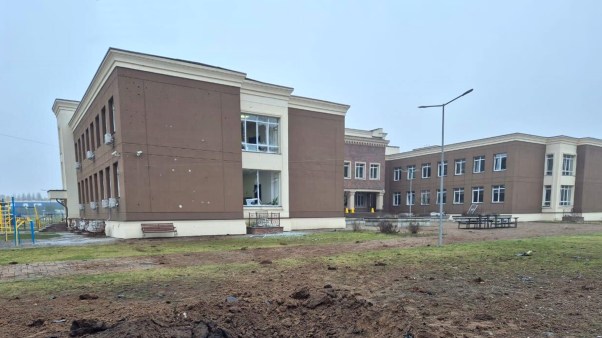As the government shutdown stretches into its third week, everyday citizens are beginning to feel its effects. For physicians working in rural areas, the shutdown has further exposed health care challenges that depend on a working Congress for solutions.
To learn more, Russell Moore and Mike Cosper of The Bulletin sat down with Kevin Stansbury, chief executive officer of Lincoln Community Hospital and Care Center in Hugo, Colorado, a small town with a population of just under 800 people.
This conversation is edited and condensed from a discussion that appeared in episode 217 of The Bulletin. Listen to the whole conversation here.
This past spring, you wrote an op-ed for The New York Times voicing concerns about how potential congressional health-care cuts could affect rural communities. What were your worries then, and have they been realized in this shutdown?
Kevin Stansbury: Right now, it’s anticipatory fear. Most of the cuts within the One Big Beautiful Bill are delayed for a couple of years, some as many as three years. But we’re getting ready for them. Unfortunately, the act failed to highlight that what rural health care actually needs is more help with our reimbursement.
At my little hospital, 75 percent of my patients use Medicare or Medicaid or simply don’t have access to insurance at all. A change in the premium tax credit, potential cuts in Medicaid, and a looming Medicare cut—that perfect storm is going to be problematic for my patients. Close to 50 percent of the rural hospitals across the country operate at a loss right now. The last thing we needed was more cuts to reimbursement.
In the shutdown, patients generally are still going to get care. Medicare and Medicaid are both essential programs, so payments continue. Access to health care is still there, as it was before the shutdown. I’m just not going to get paid for it. Some have had concerns about folks accessing the emergency department. If nobody pays for that, how do I keep in business? How do I make sure that patients that do have insurance still have access to health care?
The problem with the shutdown is that we don’t have good access to policymakers. The Centers for Medicaid and Medicare Services are down to essential employees; so there’s nobody there to answer questions on accreditation, rule-making, and benefits. It’s a very complex problem, and it’s frustrating that we can’t seem to get the ear of policymakers that this needs dramatic change.
Do you have concerns for the elderly during this pause of programs that assisted them before?
Stansbury: Access to long-term care for our elderly patients is a huge, neglected problem in rural areas. Our patients tend to be older, sick, or poor. The need for nursing home services is critical. Yet 98 percent of my long-term care patients are Medicaid patients.
If material cuts come to Medicaid, how do I tell a resident who’s lived in this community their entire life—they’re maybe in their 90s—how do I tell them I can no longer care for them? Where do they go? The next closest nursing home to me is about 90 miles away. If you’re 90, your kids are maybe in their 70s. They don’t have the ability to travel to visit you. Twenty percent of rural counties right now no longer have a nursing home. They’re just gone because the reimbursement is inadequate and it’s tough to maintain that service.
Russell Moore: Many churches don’t know how to deal with this because it is a cascading problem. The church has to address many different needs for somebody who can’t get nursing care. How do we minister to that person? How do we minister to the adult children who are trying to grapple with what to do about their parent? How do we support them as they juggle the other responsibilities of their lives? How do we minister to those in the health care professions who are, in some cases, burned out by the level of care they must give without any long-term solutions for the stressors? I think a lot of churches don’t know what to do.
It’s not as easy as saying, “Okay, we’ve got somebody with a health issue. Let’s all take up an offering and help that person.” There are times when that’s the case. However, when it’s an entire community, and churches themselves are facing the same factors, they’re not able to respond adequately even if they know what to do. That’s not just about health care. It has to do with people’s spiritual lives, their cultural lives, their family lives.
Over the last decade, we’ve seen increased curiosity about and, in some cases, a caricaturing of rural America. How do both of these show up in discussions of health care needs?
Mike Cosper: There are two sides of the problem. Bureaucracy is the rule of nobody. When we deal with funding cuts or processing problems with bureaucracies, whether it’s the IRS or Medicare or Medicaid, it can seem like nobody’s responsible.
At the same time, this story shows us that there are some problems that the federal government is best suited to address. Who else is going to solve the problem of health care in rural America if the federal government doesn’t?
There’s often an idealism among evangelical conservatives that says government should be as small as humanly possible and that generous Christians need to step up and take care of the poor in their communities. The problem is just too big here for that. The church can’t do this adequately. We don’t have the resources for it. That’s a problem that evangelical conservatives have not adequately wrestled with.
Stansbury: Many rural communities have been devastated by the opioid epidemic. We are blessed that our area doesn’t have a heavy opioid problem. Our problem is alcohol abuse, THC and marijuana, and people who fall into depression or anxiety and then try to self-medicate. Rural hospitals are very good at providing care for issues like these. We integrate our behavioral health services within our primary care services so that, if you come to the doctor’s office for your annual exam or chronic disease management, we’re always doing an assessment of your anxiety and depression. If you need help, it’s easy for us to get a provider in to see you at the same time.
Often, policymakers try to take systems that they’ve developed in urban areas and squeeze them into rural areas. We want them to see that we are different. Rural areas sometimes deliver care that is superior to what’s available in urban areas because we really know our patients. I’d love to see systems that work here scaled up for the urban areas.
In your op-ed in The New York Times, you write: “Before we opened an X-ray clinic in a remote area, residents would make deals with the local veterinarian for imaging.” I can’t imagine having to bring my child with a broken leg down to the vet where I take my dogs for services. All of these special services must be very costly for a small hospital.
Stansbury: I’m an independent, rural hospital. It’s me. I don’t call Dallas or Nashville for permission. I have a locally appointed board, and we make our decisions in the best interest of the community. There are a lot of advantages to that, but one of the disadvantages—in addition to wrestling with the federal government—is wrestling with insurance companies. I’ve been talking to one for over 18 months trying to get paid what it costs me to deliver the care.
If you look at the analysis across the country, independent rural hospitals are paid the least. I think there’s a very good argument that we should be paid the most because I have to maintain an emergency department 24 hours a day, seven days a week.
I tell policymakers in Denver all the time: If you drive east on I-70, you care about my hospital, because I’m the only hospital between Denver and the Kansas line. That’s 180 miles. We pick up a lot of patients off of the interstate who have had an incident while traveling. If I’m not out here, there’s nobody to do that. You have to drive 140 miles to Colby, Kansas, for the next closest obstetrics program on the eastern plains of Colorado. Right now, there are only four hospitals in that large area that continue to deliver babies.
Those are the kinds of things we should look at and say, Would we tolerate that in urban areas? Why then do we tolerate it in rural areas and without a serious conversation about how we address those things? I think that’s a very compelling conservative case. The government needs to step in and make sure we’re paid adequately and supporting our patients with the care they need.
Moore: Regardless of where you live, this is a problem for all of us. There’s this assumption sometimes that if we don’t expend the money, then we’re saving the money. But these serious costs that are locally borne are going to end up costing all of us money—as a country, as a community.
When it comes to health care, often we don’t think about it until we are right at the moment where it’s directly affecting us. A Christian recently admitted to me, “I never even really thought about Medicaid at all. But now I’m in a situation where suddenly I’m dealing with an elderly mother with dementia. We’re trying to figure out Medicaid. I don’t know how people navigate this entire system.” Unfortunately, it’s something we haven’t been taught to think or even care about until we need it.
Here, the church can be instrumental. Churches can support people so they don’t slip away in this time of great stress. Find out what’s happening and talk to the people, like policymakers, who can make these decisions to let them know one person’s health care in a community eventually affects all of us.
Stansbury: We forget that rural areas are where our food and fiber, our fuel, our clean water generally come from. Rural hospitals are often the economic engine that maintains the viability of rural communities.
A 2019 study by the Federal Reserve Bank in Kansas City looked at what happens to communities when a hospital’s closed. Over a 10-year period, job losses continue and the communities are absolutely devastated. Who’s left behind to grow the food, to produce the fiber, to produce the fuel, to maintain the clear water? Regardless of where you live, it’s really in our national interest to maintain the viability of rural communities and maintain access to basic, essential services.













